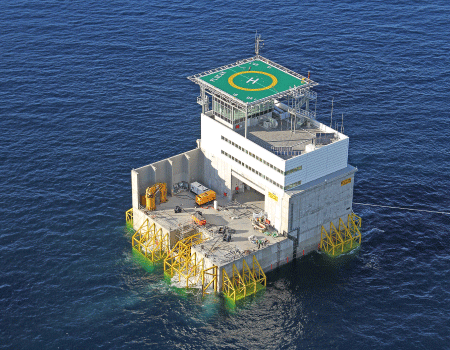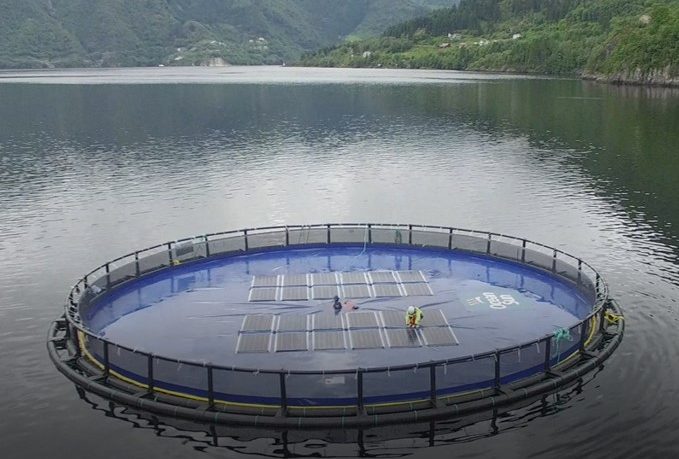- European Union funding has been secured under the Horizon 2020 program for a floating solar pilot project in the Canary Islands to explore how the technology performs in challenging sea conditions.
- A consortium including Ocean Sun and Fred Olsen Renewables will develop the 250kWp floating PV unit.
- The other partners in the consortium are Innosea, the Technological Institute of the Canary Islands (ITC) and the Oceanic Platform of the Canary Islands (PLOCAN).

Ocean monitoring platform. Image credit: Ocean Sun
During the project the partners shall perform state-of-the art analyses, laboratory tests and build a full-scale 0,25MWp floating solar power unit in the sunniest part of Europe, off the coast of Gran Canaria. The offshore test location poses challenging sea conditions with up to 10m wave-heights and high winds. As such the project is an excellent opportunity for Ocean Sun to explore the outer limits of its technology. The project will also serve to qualify and certify Ocean Sun’s patented floating solar technology for offshore applications in non-sheltered locations.
“The sea-state outside of Gran Canaria represent a step change for the application area for commercial floating solar technologies today. Successful operation of the special membrane solution in these waters will pave way for abundant supply of affordable renewably energy in the lower latitudes,” said Børge Bjørneklett, CEO and Founder of Ocean Sun.
“Fred Olsen Renewables wants to take a first-mover position as project developer, owner and operator of floating solar in selected countries in Asia and Southern Europe. This EC-project, together with our agreement with the Solar Energy Institute of Singapore (SERIS), will give us valuable insights for future commercial projects both off- and near-shore,” commented Rolf Benjamin Johansen, Director of Floating Solar, Fred Olsen Renewables.
The project has a duration of 30 months and a total budget of 4 million euros. The project starts in January 2021 with design and tests in basin laboratory and will be followed by sea trials. Following the installation, all aspects of the system will be analyzed and a plan for further commercialisation and large-scale deployments will be developed.
Author: Bryan Groenendaal















